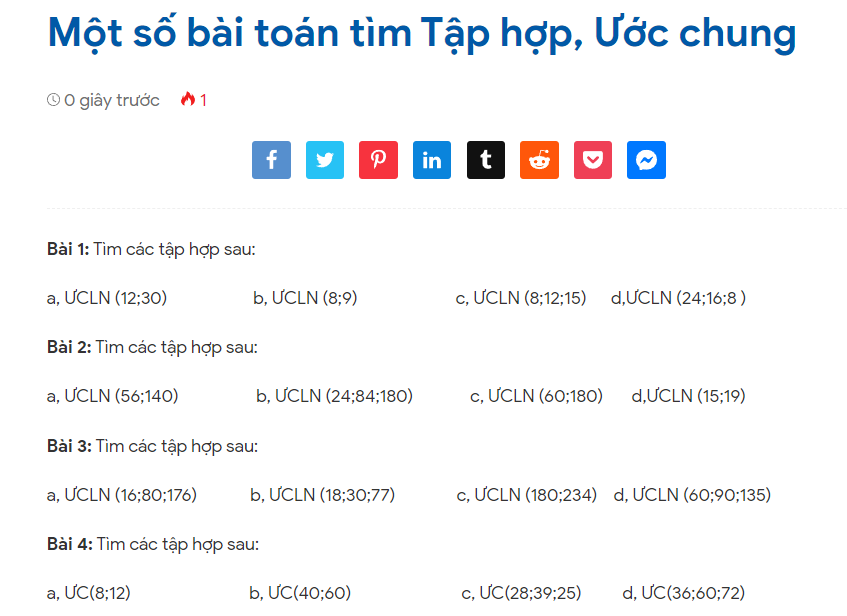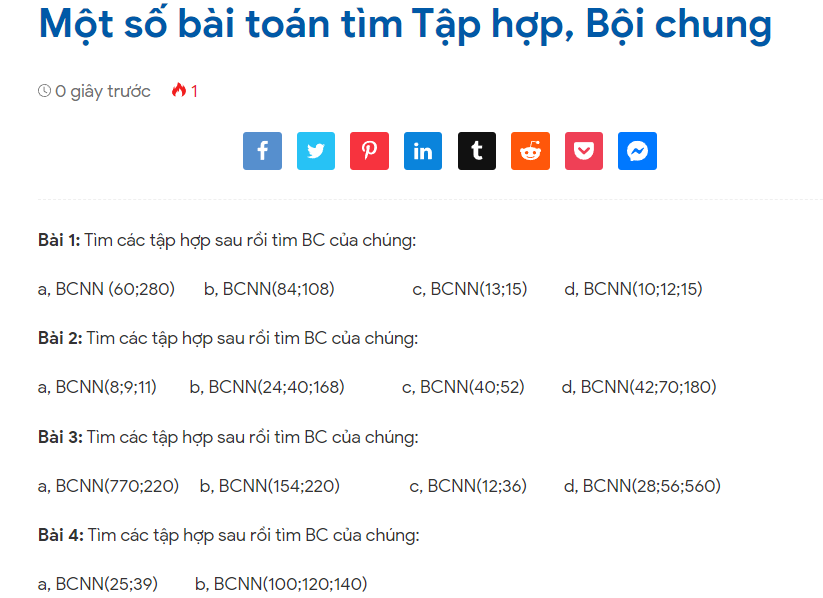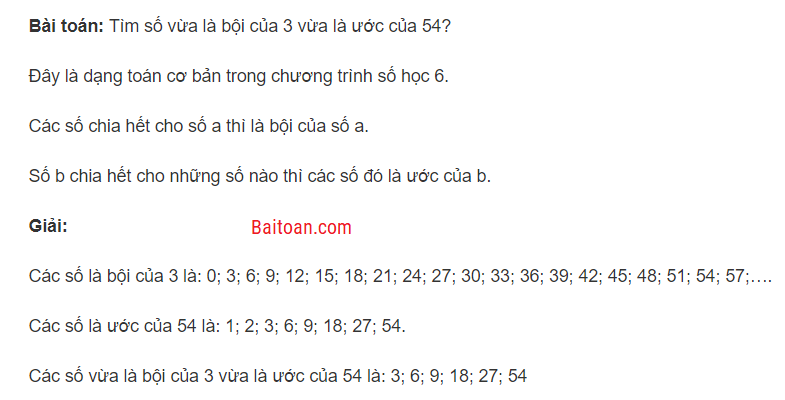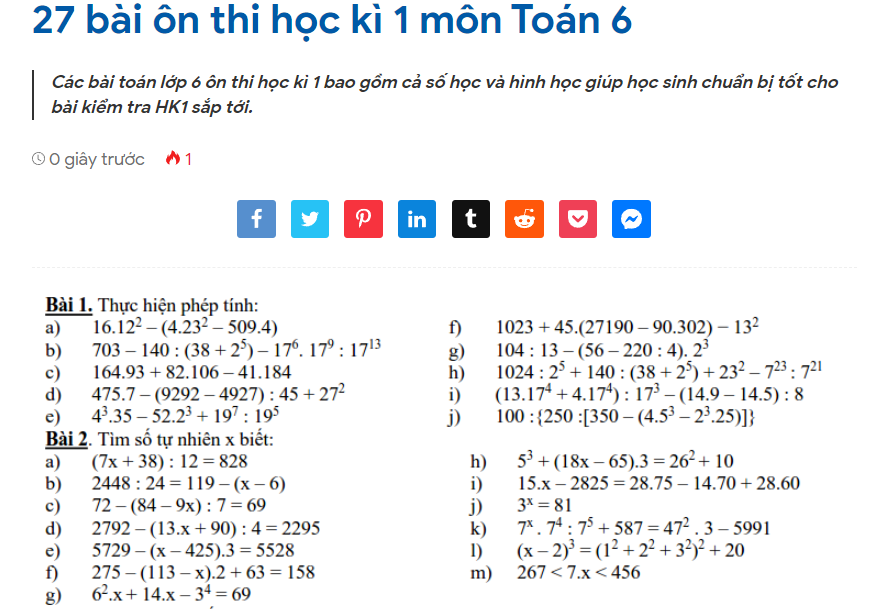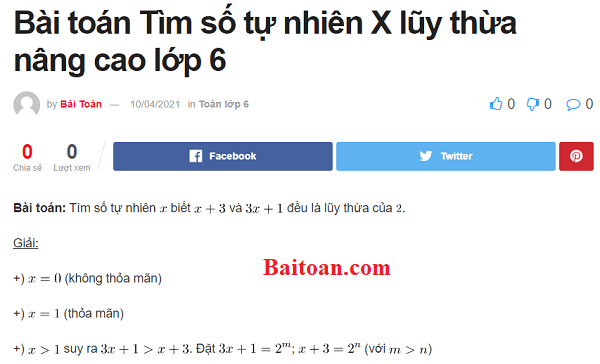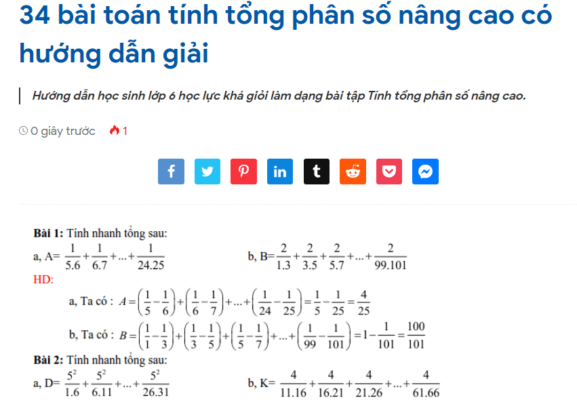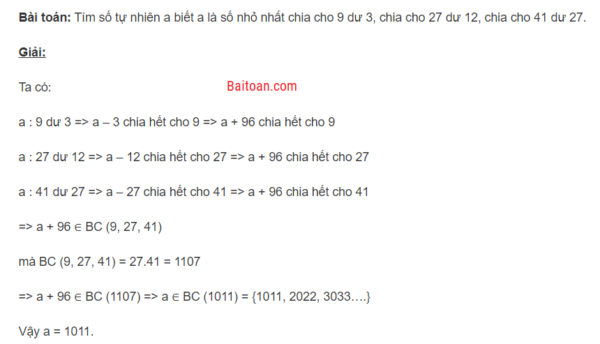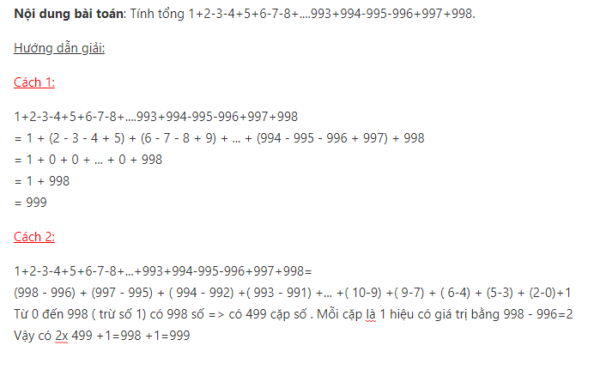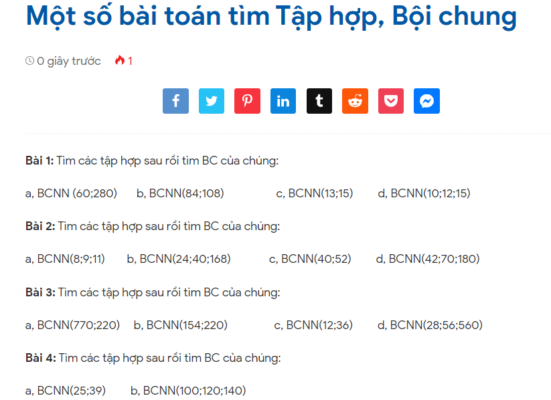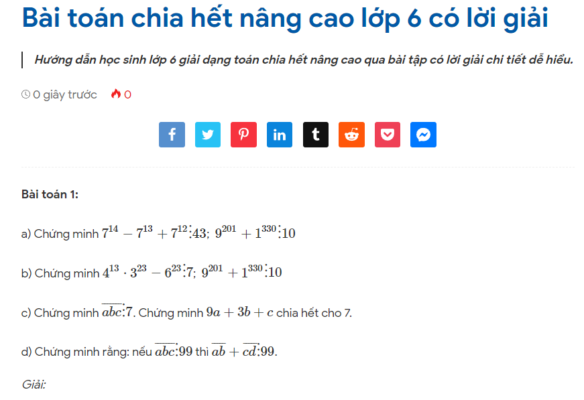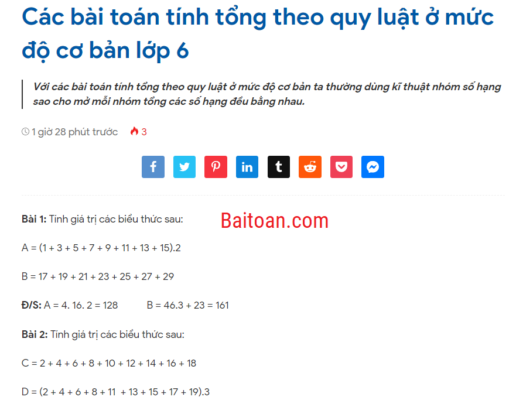Bài toán: chứng minh $ \displaystyle A={{2}^{2}}+{{2}^{4}}+{{2}^{6}}+\ldots +{{2}^{{18}}}+{{2}^{{20}}}$ có chữ số tận cùng là 0.
Giải:
Phân tích:
$ \displaystyle A={{2}^{2}}+{{2}^{4}}+{{2}^{6}}+\ldots +{{2}^{{18}}}+{{2}^{{20}}}$
$ \displaystyle {A=\left( {{{2}^{2}}+{{2}^{4}}} \right)+\left( {{{2}^{6}}+{{2}^{8}}} \right)+\ldots \left( {{{2}^{{18}}}+{{2}^{{20}}}} \right)}$
$ \displaystyle {A=20+{{2}^{4}}\cdot \left( {{{2}^{2}}+{{2}^{4}}} \right)+\ldots {{2}^{{16}}}\cdot \left( {{{2}^{2}}+{{2}^{4}}} \right)}$
$ \displaystyle {A=20+{{2}^{4}}\cdot 20+\ldots {{2}^{{16}}}\cdot 20}$
$ \displaystyle A=20\cdot \left( {1+{{2}^{4}}+\ldots {{2}^{{16}}}} \right)$
$ \displaystyle A=10\cdot 2\cdot \left( {1+{{2}^{4}}+\ldots {{2}^{{16}}}} \right)$
Nhận xét: Tổng trong ngoặc là 1 số tự nhiên, tích trên có 1 thừa số là 10 ⇒ A có chữ số tận cùng là 0.

